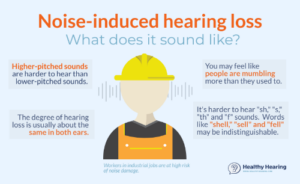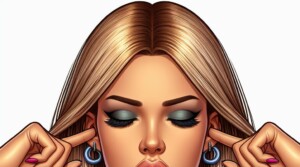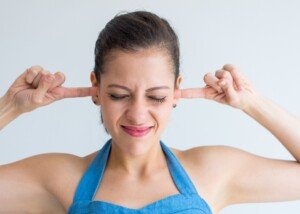If you use earplugs or noise cancelling headphones in loud areas but are also autistic, is this “noise sensitivity” or smartness about hearing health?
There’s a phenomenon in which if an autistic person does something that most people don’t do, it’s attributed to their autism.
But if a neurotypical person does the same thing, it’s attributed to other, more socially acceptable reasons.
If an ordinary person puts sunscreen on every time they go outdoors, even for short periods, most people would agree that this is a normal case of skin health consciousness – especially with the publicity about skin cancer avoidance.
Nobody would brand this individual as having a “sun sensitivity” or having “sensory issues” with sunlight (though these are actual disorders).
Instead, especially since there’s tons of brands and marketing for sunscreens, they’d simply be viewed as making a smart, health related choice.
If they were autistic? Hmmm … many neurotypicals will think that the sunscreen use is excessive and due to some “autistic sensory problem.”
Hearing Health Consciousness vs. Autism Sensory Issue
I began getting hearing health conscious around 11 or 12, when I began realizing that my father’s hearing wasn’t too great.
He enjoyed spending lots of time in his basement workshop. I’d frequently hear power drills, the sanding machine and a circular saw.
It’s not rocket science: Exposure to repeated loud noise leads to hearing loss.
But it wasn’t till college, at age 17, when I began putting cotton in my ears – in the campus weightlifting room.
I then began wearing noise cancelling headphones (the ear muffs that hunters and industrial workers wear) to gyms once I graduated college. People thought this was strange.
I went on to wear earplugs to any venue that had the potential for loud noise, all while over the course of time, it was apparent that my father’s hearing was getting worse (and he continued using loud machinery for his DIY home projects).
People thought I had “sensitive” ears, yet nobody thought I had sensitive skin when I applied sunscreen. People are just plain nuts, aren’t they?
In the springtime of 2022, I was diagnosed with Autism Spectrum Disorder.
Now suddenly, my use of earplugs or noise cancelling headphones is viewed as part of my autism!
My oldest brother wears hearing aids, yet believes my intolerance for loud environments is a sensory issue related to my autism.
Though I’m not an audiologist (specialist in hearing health), I can confidently declare that my brother’s hearing loss stems from years of exposure to very loud noise – without using earplugs.
One of my sisters told me she has “moderate bilateral hearing loss.” She, too, has years of experience being around loud people and other loud environments – without using earplugs.
Another brother told me that a health checkup, as part of his new job, revealed “compromised” hearing.
This might be from attending live concerts and, in general, just being in the loudness of an industrial society – without using earplugs. He’d never be caught dead wearing earplugs, seeing them as a sign of weakness.
I, on the other hand, a middle-age individual, have pretty good hearing! In 2022 I underwent an audiogram: a complete examination of my hearing by an audiologist.
Though I have some impairment in the high frequency range, my hearing is normal to very good with other types of sound detection, such as distinguishing softly spoken words among background noise.
Over the years I’ve been in numerous environments where I was able to hear things that others couldn’t.
Though this ability is sometimes a checkpoint on autism tests, I firmly believe that most, if not all of it, comes from my lifelong hearing health consciousness.
I’ve worn earplugs in movie theatres, at any venue where people were speaking in microphones, at fireworks shows, in loud restaurants, in group fitness classes – you name it.
No, it’s not autism. It’s hearing health consciousness. I don’t want to end up like my brother and both parents: needing hearing aids!
Though there are sounds of normal to low volume that really, really irritate me and lead to plugging my ears or making accommodations to escape the noise – and I believe these low-volume cases ARE due to autism – this doesn’t mean that an autistic person can’t be hearing health conscious simply due to the fact that they don’t want to ever develop NIHL: noise induced hearing loss.
I’ve worn the noise cancelling headphones at business conventions and Las Vegas magic shows – to protect my ears from the deafening loud music that always came with those events.
This is NOT sound sensitivity due to autism. However, the indifference to what strangers think of my bulky noticeable ear muffs is probably driven by one of my autistic superpowers: not giving a FF what people think of my lifestyle choices!
This isn’t to say that I won’t make special considerations.
For example, at my niece’s wedding reception where the music was downright deafening, I wore only my custom-made earplugs, even though the addition of the headphones would’ve made a difference.
But this was a venue where I “had” to follow a social rule: don’t stand out.
I spent a lot of time in the lobby to relieve my ears from the thundering onslaught – not because I’m autistic but because I don’t EVER want to end up with lousy hearing.
Noise Induced Hearing Loss Is Cumulative
Neurotypical people who don’t wear hearing protection are just as vulnerable to NIHL as are autistic people.
A really fascinating consideration is that autistic people who indeed find loud noise intolerable — regardless of the idea of hearing loss — may simply be more in tune with our evolutionary history.
The ridiculously loud sounds of a modern society — such as leaf blowers, sirens and alarms, subwoofers, highway traffic and machinery — are not part of nature.
Humans did not evolve to find these sounds pleasing. Some autistic people may simply have a more pronounced development of the part of the brain that filters sound.
Nevertheless, nobody is immune to NIHL.

Read more about how you yourself might have noise induced hearing loss.
 Lorra Garrick has been covering medical and fitness topics for many years, having written thousands of articles for print magazines and websites, including as a ghostwriter. She’s also a former ACE-certified personal trainer. In 2022 she received a diagnosis of Level 1 Autism Spectrum Disorder.
Lorra Garrick has been covering medical and fitness topics for many years, having written thousands of articles for print magazines and websites, including as a ghostwriter. She’s also a former ACE-certified personal trainer. In 2022 she received a diagnosis of Level 1 Autism Spectrum Disorder.
.



























